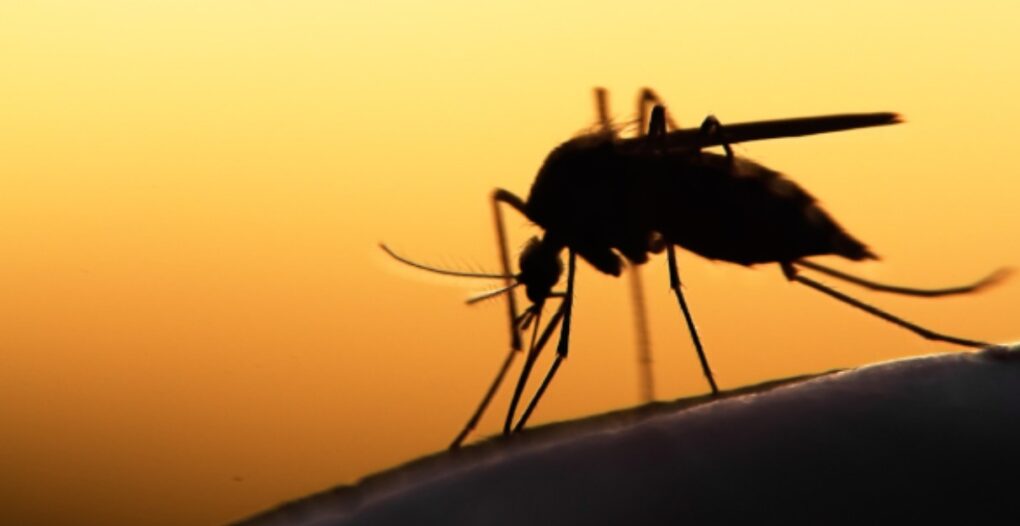Beyond Bug Spray: Natural Strategies to Combat Dengue as Florida Reports New Case
 By GreenMedInfo Research Group
By GreenMedInfo Research Group
As summer temperatures soar in the Sunshine State, so too does the risk of mosquito-borne illness. Florida health officials recently confirmed a locally-acquired case of dengue fever in Hillsborough County, serving as a stark reminder that this tropical disease is no longer confined to distant shores.1 While conventional prevention focuses on insecticides and repellents, a growing body of research points to promising natural approaches that may complement these efforts.
Dengue fever, nicknamed “breakbone fever” for its severe muscle and joint pain, is a viral infection spread primarily by Aedes mosquitoes. The disease has seen a 30-fold increase globally over the past 50 years, with an estimated 390 million infections annually.2 As climate change expands the range of Aedes mosquitoes, cases have emerged with increasing frequency in Florida and other parts of the southern United States.
Conventional prevention strategies center on mosquito control and personal protection measures like DEET-based repellents. However, a review of the scientific literature reveals a wealth of natural compounds and traditional remedies that show anti-dengue potential. From common kitchen ingredients to lesser-known herbs, nature may offer additional tools in the fight against this resurgent threat. The following natural approaches were selected from the Greenmedinfo.com database on natural approaches to Dengue Fever.
Papaya Power
One of the most studied natural approaches to dengue comes from an unexpected source – the humble papaya. Multiple clinical trials have found that extracts from papaya leaves can significantly increase platelet counts in dengue patients, potentially reducing the risk of severe complications.3 The mechanism is not fully understood, but researchers believe compounds in papaya leaves may stimulate the production of platelets or inhibit their destruction.
A 2019 meta-analysis published in BMC Complementary Medicine and Therapies concluded that papaya leaf extract “offers a cheap and possibly effective treatment for dengue.”4 While more research is needed, papaya leaf preparations are already used in some countries as an adjunct therapy for dengue fever.
 Regenerate: Unlocking Your Body’s Radical Resilience through the New Biology
Regenerate: Unlocking Your Body’s Radical Resilience through the New Biology
Fantastic Flavonoids
Another promising avenue of research focuses on flavonoids, plant compounds with potent antioxidant and anti-inflammatory properties. A 2011 study published in Virology Journal found that several types of bioflavonoids showed significant antiviral activity against dengue virus in laboratory tests.5
Quercetin, a flavonoid found in many fruits and vegetables, has demonstrated particularly strong anti-dengue effects in multiple studies. Other flavonoids like naringenin (found in citrus fruits) and fisetin (found in strawberries and other produce) have also shown promise in early research.6
While human trials are still lacking, these findings suggest that a flavonoid-rich diet may offer some protection against dengue infection or help mitigate its severity.
Herbal Helpers
Traditional herbal medicines are also under the microscope for their potential anti-dengue properties. Andrographis paniculata, an herb used in Ayurvedic and Traditional Chinese Medicine, has shown notable antiviral activity against dengue in laboratory studies.7 Other herbs like holy basil and neem have also demonstrated promising effects in preliminary research.
Mushroom Magic
Even fungi may have a role to play in combating dengue. A 2019 study found that extracts from several medicinal mushrooms, including reishi and lion’s mane, exhibited potent antiviral activity against dengue virus.8 The researchers noted that these mushroom extracts showed less toxicity than conventional antiviral drugs, suggesting they could be developed into safer treatment options.
Integrative Approach
While these natural strategies show promise, it’s crucial to note that they should not replace proven prevention methods or medical care for dengue fever. Instead, they represent potential complementary approaches that may enhance conventional strategies.
As climate change continues to expand the range of dengue-carrying mosquitoes, a multi-faceted approach combining the best of conventional and natural methods may offer the strongest defense. By harnessing the power of nature alongside modern science, we may yet turn the tide against this resurgent tropical threat.
Learn more about natural, evidence-based approaches to Dengue Fever on the Greenmedinfo.com database here.
References
1: Ginny Reese, “Dept of Health Hillsborough County confirms local human case of dengue fever,” ABC Action News, June 22, 2024, https://www.abcactionnews.com/
2: World Health Organization, “Dengue and severe dengue,” May 17, 2023, https://www.who.int/news-room/
3: Ajeet Kumar Gadhwal et al., “Carica papaya leaf extract increases the platelet count in dengue fever without any side effect and prevents the complication of thrombocytopenia,” The Journal of the Association of Physicians of India 64, no. 6 (2016): 22-26.
4: Senaka Rajapakse et al., “Carica papaya extract in dengue: a systematic review and meta-analysis,” BMC Complementary Medicine and Therapies 19, no. 1 (2019): 265.
5: Keivan Zandi et al., “Antiviral activity of four types of bioflavonoid against dengue virus type-2,” Virology Journal 8, no. 1 (2011): 560.
6: Sandra Frabasile et al., “The citrus flavanone naringenin impairs dengue virus replication in human cells,” Scientific Reports 7, no. 1 (2017): 41864.
7: Sulochana Kaushik et al., “Andrographolide from the A. paniculata possess anti-dengue activity against dengue-2 virus,” Journal of Ethnopharmacology 267 (2021): 113541.
8: Kavithambigai Ellan et al., “These findings demonstrated the potential of mushroom extracts as anti-dengue therapeutic agents with less toxic effects,” BMC Complementary and Alternative Medicine 19, no. 1 (2019): 260.
The GMI Research Group (GMIRG) is dedicated to investigating the most important health and environmental issues of the day. Special emphasis will be placed on environmental health. Our focused and deep research will explore the many ways in which the present condition of the human body directly reflects the true state of the ambient environment.
Disclaimer: This article is not intended to provide medical advice, diagnosis or treatment. Views expressed here do not necessarily reflect those of GreenMedInfo or its staff.
Source: GreenMedInfo
This article is copyrighted by GreenMedInfo LLC, 2024
Visit our Re-post guidelines



